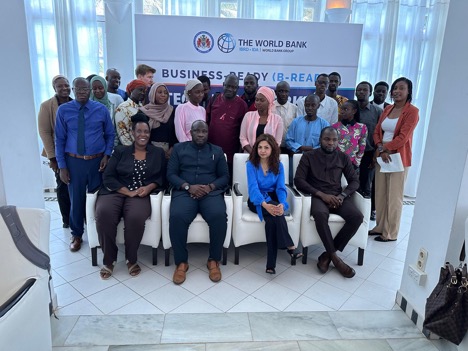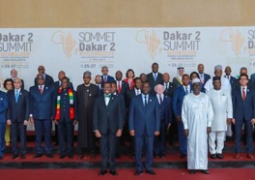
Key among the objectives of this national workshop is to equip the thematic groups for a successful pilot data collection in September 2024 and in the medium-term subsequent phases of successive evaluations. The objectives are to: revisit the questionnaire for each thematic group in detail; analyse the responses to the questionnaire by the target group in light of the context; correct the state of play in relation to the answers to the questions relating to each indicator; correct the diagnosis made and ensure correct reporting of the proposals for action made; and propose a reform action plan.
During the workshop, Technical Working Groups were created on thematic areas of the B-Ready to identify reform actions to be implemented in the short and medium term.
In his closing remarks on behalf of the Permanent Secretary, the Deputy Permanent Secretary at the Trade Ministry, Mr Ismaila Danso, thanked the World Bank team for their time and support in helping stakeholders understand the process of the assessment. He commended the stakeholders for their active participation in the course of the 4-day workshop.
According to him, the World Bank has now replaced its ‘Easy of Doing Business’ with the B-Ready and The Gambia is one of countries that is identified for the piloting of the B-Ready. The report, which has 10 thematic areas, will collect data that are comparable across economies for actionable evidence to promote reforms for a stronger private sector.
About the B-Ready Business Ready is the World Bank’s new flagship report benchmarking the business environment and investment climate in most economies worldwide. The report assesses the regulatory framework and public services directed at firms, and the efficiency with which regulatory frameworks and public services are combined in practice. With data that are comparable across economies and over time, B-Ready provides actionable evidence to promote reforms for a stronger private sector.
Moreover, B-Ready takes a form of a quantitative assessment of the business environment for private sector development and scores are made on three broad areas: Regulatory Framework, Public Services and Efficiency on the following thematic areas: Business entry, business location, utility services, labour, financial services, international trade, taxation, dispute resolution, market competition, and business insolvency. The Gambia is part of the pilot countries that are assessed; the first report shall be out in May 2024, and the second assessment will be in September 2024.



